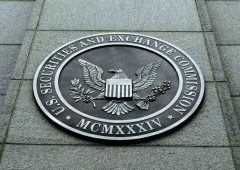German Officials Push to Reclaim Gold from US Reserves
07.04.2025 11:00 2 min. read Alexander Stefanov
There is growing debate in Germany over the country’s gold reserves stored in the United States, as some officials push for more transparency and control.
Germany currently holds more than $109 billion worth of gold at the New York Federal Reserve, but rising geopolitical tensions are prompting calls to reassess this arrangement.
Michael Jäger, from the European Taxpayers’ Association, is at the forefront of the movement, urging the German government to immediately repatriate its gold.
Jäger argues that with global power dynamics shifting and discussions about new debt in Berlin and Brussels, it is vital to secure direct access to the reserves. He emphasizes that, at the very least, Germany should be able to physically inspect the gold bars stored abroad.
Adding to the call for action, Markus Ferber, a member of the European Parliament, insists on regular checks to verify the reserves. He believes that Bundesbank officials should personally count and document the gold bars to ensure their accuracy and safety.
Similarly, Marco Wanderwitz from the CDU party echoes this sentiment, advocating for either frequent inspections or a complete repatriation of the gold.
The discussion has gained further momentum following comments from tech billionaire Elon Musk, who recently proposed that an audit of Fort Knox be livestreamed. Fort Knox, which holds a significant portion of the US gold reserves, has not undergone an audit since 1974, raising questions about transparency.
Despite these concerns, Germany’s Bundesbank remains confident in the current arrangement. A spokesperson for the Bundesbank recently reiterated President Joachim Nagel’s stance, affirming the institution’s trust in the New York Federal Reserve as a reliable custodian for Germany’s gold.
-
1
Binance CEO Issues Urgent Crypto Security Reminder
09.07.2025 17:30 2 min. read -
2
Top 7 Crypto Project Updates This Week
19.07.2025 18:15 3 min. read -
3
EU Risks Falling Behind in Digital Finance, Warns Former ECB Board Member
06.07.2025 13:00 2 min. read -
4
BlackRock Moves to Add Staking to iShares Ethereum ETF Following SEC Greenlight
18.07.2025 9:00 1 min. read -
5
Czech National Bank Enters Crypto Sector with $18M Coinbase Investment
14.07.2025 9:00 1 min. read
Bank of Korea Launches New Division to Oversee Crypto and Stablecoin Developments
The Bank of Korea (BOK) has taken a significant step toward deepening its involvement in the digital asset ecosystem by establishing a dedicated virtual asset division, according to a report from local media outlet News1.
JPMorgan: Coinbase Could Gain $60B From USDC-Circle Ecosystem
A new report from JPMorgan is shedding light on the staggering upside potential of Coinbase’s partnership with Circle and its deep exposure to the USDC stablecoin.
5 Major US Events and How They Can Shape Crypto Market in The Next Days
The week ahead is shaping up to be one of the most pivotal for global markets in months. With five major U.S. economic events scheduled between July 30 and August 1, volatility is almost guaranteed—and the crypto market is bracing for impact.
eToro Launches 24/5 Stock Trading, Unlocking Round-the-clock Access to Top US Shares
Global fintech platform eToro has officially rolled out 24/5 trading on its 100 most popular U.S. stocks, giving users the ability to buy and sell equities at any time from Monday to Friday.
-
1
Binance CEO Issues Urgent Crypto Security Reminder
09.07.2025 17:30 2 min. read -
2
Top 7 Crypto Project Updates This Week
19.07.2025 18:15 3 min. read -
3
EU Risks Falling Behind in Digital Finance, Warns Former ECB Board Member
06.07.2025 13:00 2 min. read -
4
BlackRock Moves to Add Staking to iShares Ethereum ETF Following SEC Greenlight
18.07.2025 9:00 1 min. read -
5
Czech National Bank Enters Crypto Sector with $18M Coinbase Investment
14.07.2025 9:00 1 min. read


